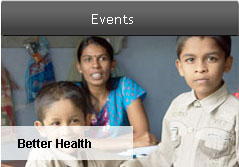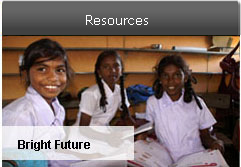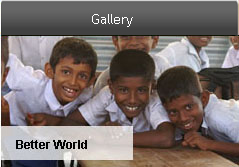War, natural disasters, diseases are alcoholism are some of the major causes that leave children without parents or separate children from parents. These are some of the reasons that force the responsibility of looking after these children into the hands of their relatives and the community.
A sudden surge of orphans in war ravaged countries has made it necessary for children to be placed in orphanages. This has lead to thousands of orphanages being established in a country. The children in orphanages become alienated from their environment, relatives and friends. Research evidence has revealed that the psychological and physical development becomes stunted in institutionalised individuals. Therefore, over time the problems faced and posed by these institutionalised individuals' necessitated gradual closure of orphanages.
Retention of the orphans in the community by implementing foster care was thought of as an alternative to institutionalising the children. Over time, this has been given importance in many countries. In some countries in Africa, where children became orphaned in large numbers as a result of diseases like AIDS and war, foster care programme has firmly taken root and is proving workable.
North and East regions of Sri Lanka have repeatedly seen large numbers of orphans as a result of the civil war. The Boxing Day Tsunami of 2004 and recent escalation of violence have brought another wave of orphans. Foster care has been in existence in Sri Lanka for a along time, but has been put into wider practice after the Tsunami.
Following the Tsunami, the Tsunami (special provisions) act No 16 of 2005 came into operation in June 2005. This encourages foster care and prevents placing children in institutions. There are provisions for relatives and friends who foster the children to legally adopt the child after one year. Department of Probation and Child Care along with National Child Protection Authority are responsible for finding a suitable foster parent. Following the Tsunami, Department of Probation and Child Care along with help from UNICEF placed the children who had lost the parents with suitable relatives or friends. These custodians were required to apply to the Magistrate's Court to gain permission for fostering (This is family and friends/Kinship fostering ). Foster care is being closely monitored. In the instance where a child is found to be not cared for satisfactorily, the Department of Probation and Child Care will take the necessary steps to find and place the child in alternative care. Placing a child in an orphanage could happen in extreme circumstances and as the last resort where fostering becomes impossible. |







